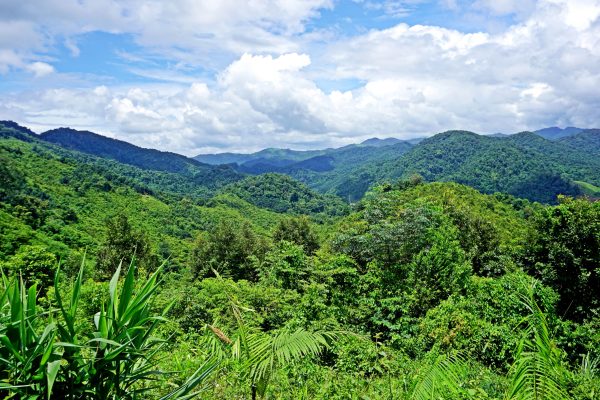



Chief Medical Director of Afe Babalola University Ado-Ekiti (ABUAD) Multi-System Hospital, Dr. Kolawole Ogundipe, and wife of Cross River State Governor, Eyoanwaan Otu, have called on Nigerians to demand their rights to healthy living as fundamental human rights. They emphasized that the government should prioritize non-clinical aspects of health, such as the environment and social factors, in addition to medical facilities and hospitals. Dr. Ogundipe highlighted the importance of the environment in determining the health and lifespan of individuals, including access to clean air and water. He urged Nigerians to demand these basic necessities from the government. Dr. Akinyemi Akinyugha, the Technical Adviser to the Ekiti State Governor on Green Economy and Ecological Matters, echoed the need to prioritize environmental issues for the sake of public health. Eyoanwaan Otu emphasized that healthcare is not a privilege but a fundamental human right that should be provided by the government [5a5f57c4].
This call for healthy living as a fundamental human right aligns with the broader theme of World Health Day, which emphasizes the right to access quality health services for all. The Chief Medical Director and the wife of the Cross River State Governor highlighted the importance of non-clinical aspects of health, such as the environment, in addition to medical facilities. They emphasized that healthcare is a fundamental human right that should be prioritized by the government [5a5f57c4].
The link between human rights and cancer prevention is further underscored by the call for healthy living as a fundamental human right. Access to a clean environment, including clean air and water, is crucial for preventing diseases like cancer. By demanding their rights to healthy living, Nigerians can contribute to cancer prevention and overall public health [5a5f57c4].
Physicians in Canada are also recognizing the link between human rights, human health, and the environment. They argue that the implementation of the right to a healthy environment, newly recognized under the Canadian Environmental Protection Act, should go beyond research and monitoring and include urgent action. The harms to people's health from toxic exposures and the disproportionate impact on Indigenous, Black, and other racialized communities are highlighted. Examples include the toxic pollution in the Kanien'kéha (Mohawk) First Nation, fracking activities in northern B.C., water pollution in Quebec, toxic exposures in Aamjiwnaang First Nation in southern Ontario, oilsands tailings ponds in northern Alberta, and mercury exposure in Anishinaabeg communities in northwestern Ontario. The physicians emphasize the need for preventive and precautionary decisions, reporting of health disparities, and prioritizing action on the most harmful exposures and pollution. They call for strong enforcement, identification and addressing of infringements of the right to a healthy environment, and ongoing research and analysis [7e6450c4].
The ASEAN Declaration on Environmental Rights, recently drafted by the Association of Southeast Asian Nations (ASEAN), has come under criticism for lacking necessary provisions for effective environmental and social safeguards. The declaration, which aims to protect environmental rights in the region, has been deemed vague and diluting or eliminating provisions on fundamental rights. The lack of clear provisions on cross-pillar cooperation, monitoring, and implementation has also been highlighted. The draft should be revised to make it legally binding and include explicit mention of environmental human rights defenders (EHRDs) and indigenous peoples' rights. It should also acknowledge the role of member states and non-state actors as violators of environmental rights and impose ownership on ASEAN governments and corporations for preventive and corrective action. Additionally, the insights and experiences of impacted communities and EHRDs should be included in the declaration. The history of denying an enabling environment for human rights and environmental rights by ASEAN member states raises concerns about the effectiveness of the declaration. If these concerns and recommendations are ignored, there may be a need to reject the current draft and advocate for a new one [095bbfff].
An ASEAN working group is resuming drafting the environmental rights declaration in Kuala Lumpur, Malaysia. The first draft was released in March 2024 and received public comments. Human Rights Watch raised concerns over the lack of protections for Indigenous peoples and the absence of provisions on corporate accountability and climate-related mobility. Other groups also made submissions to improve the draft. The working group met in May to consider the public submissions but has not released an updated version of the declaration. The group should publish the most recent version and engage with affected communities before submitting it for adoption [f6daeeb8].
Delaware becomes the latest state to allow euthanasia. Canada has been at the forefront of codifying medically-induced suicide as a 'human right'. Religious hospitals in Canada are facing hostility for refusing to perform euthanasia. Dying With Dignity Canada advocates for the removal of religious objections to euthanasia. The organization encourages individuals to share stories of religious obstruction in healthcare. The presence of taxpayer funding is used to pressure religious organizations to abandon their principles. The push for euthanasia is part of a larger Culture of Death that includes abortion and gender mutilation. The new rights of euthanasia are prioritized over religious rights. Similar cases in Canada could have implications beyond assisted dying, potentially allowing faith-based institutions to deny care based on religious beliefs. The promotion of euthanasia is happening in America and other Western nations. Powerful forces are helping to promote this new norm [5ea6bfc8].